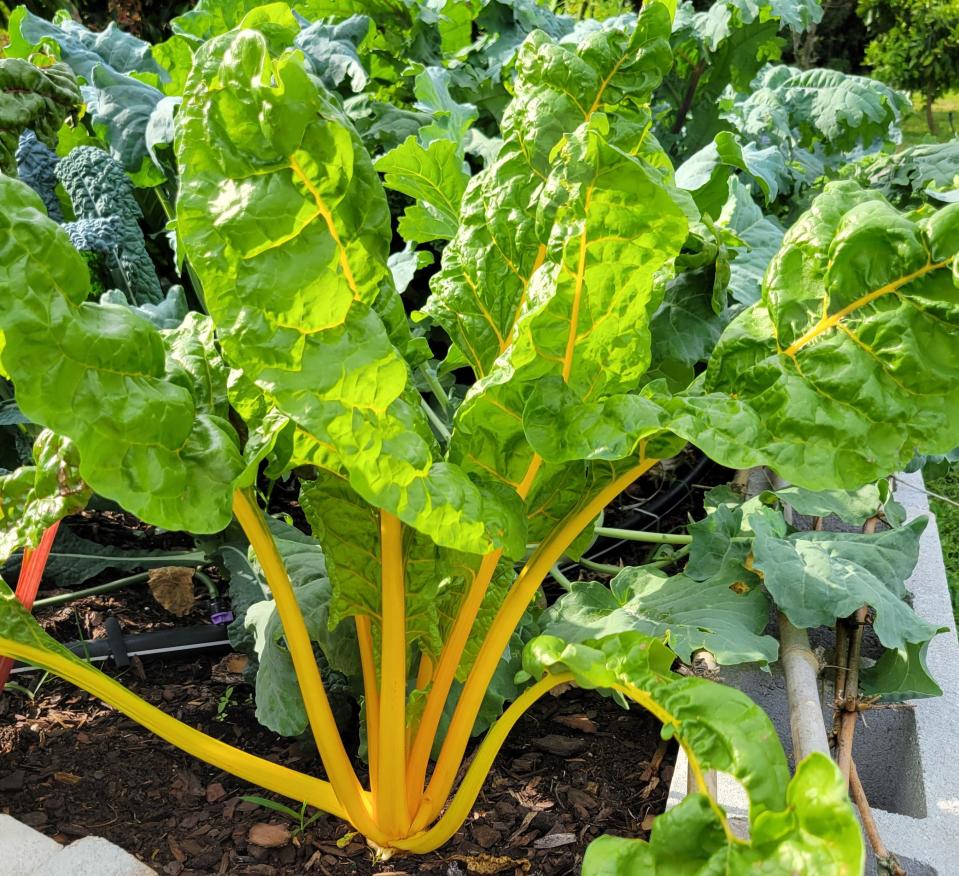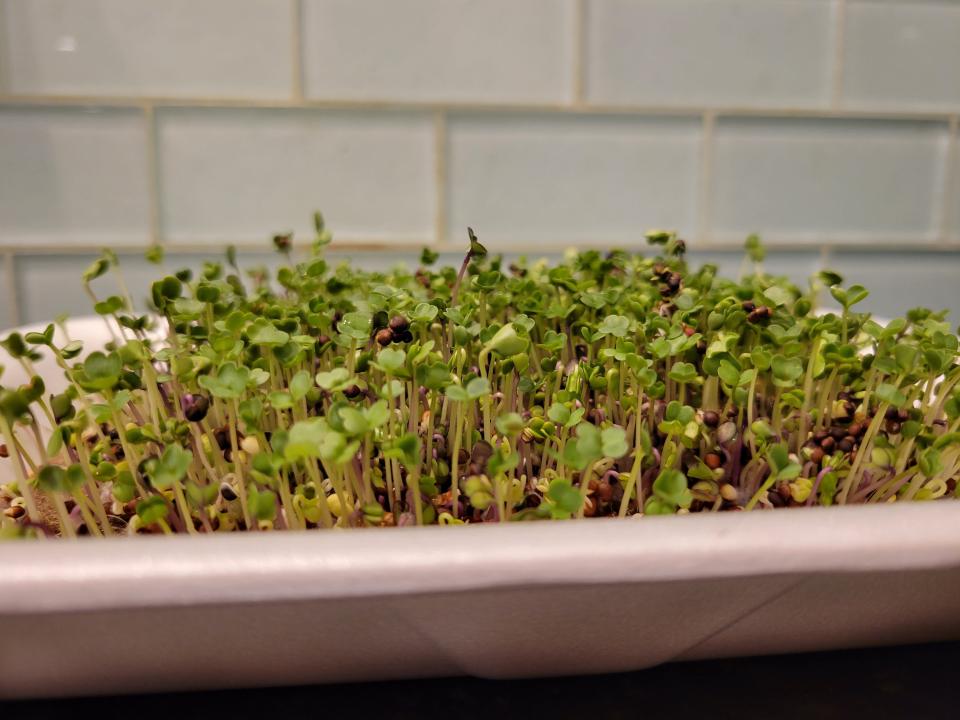Lettuce talk growing veggies: Tips abound for Brevard gardeners | Sally Scalera
If you have only grown vegetables in another state, you should know that it’s different here.
While summer is a good time to plant okra, pumpkin (in mid-July), Southern peas, sweet potatoes, and tropical vegetables, most of our vegetables are planted from August through May. When the basics are followed, delicious food is the reward.
No matter where you live, you can grow vegetables in the ground, raised beds, containers (including hanging baskets), and/or hydroponically. Ample light and water will also be needed for good plant growth and fruit production. For vegetables that produce fruit (botanically speaking) like tomato, pepper, cucumber, etc., be sure to choose a location that receives full sun, which is at least six hours of direct sunlight per day. Vegetables that are grown for their foliage (i.e., spinach, lettuce, kale, etc.) can be grown in full sun or partial shade.

Ample water will also be needed for optimum plant growth, and one of the easiest ways to water would be to set up micro-irrigation, which also works well for plants growing in containers and hanging baskets. Micro-irrigation also conserves water. A good location to grow your edibles would be near both the house and a water source to increase the chances of a successful harvest.
If you want to grow vegetables in containers, ensure the container has good drainage and use a potting mix that drains quickly. Be sure to also have a tray underneath to help when watering. It is best to allow the potting mix to dry out slightly between waterings versus keeping it too wet. If you allow the potting media to dry out some, or possibly too much, the tray will be there to hold water and allow both the potting mix and plant to absorb it.
When it comes to growing vegetables in the ground, proper soil preparation is important, and a great first step would be to test the soil for nutrient levels so the garden gets off to a great start. Here is a link to our Soil Testing Form: https://edis.ifas.ufl.edu/pdf/SS/SS18700.pdf. Be sure to pay for the $10 Test B.
More: May's full of opportunities for gardeners ready to go and grow | Sally Scalera
On Page 2 are the crop codes (90 is for vegetable gardens), along with the information on collecting a soil sample, where to send it, etc. Send one cup of soil in a Ziplock bag and label it with your name, address, sample ID, and crop code 90.
Sandy soil will not store water that is needed for producing healthy plants, so amending the area with organic matter (i.e., mushroom compost, compost, etc.) will be very beneficial. When creating a new plot, add a 4- to 6-inch layer of organic matter over the entire area and mix it into the soil. After mixing, level the area and plant, and then apply mulch to cover and protect the soil.
When vegetable gardening in Florida, it is important to plant the various crops at the correct time of year. This is the biggest reason that vegetable gardening differs here from the other 47 contiguous states. The good news is that this is the easiest part to get correct. Print a copy of our Florida Vegetable Gardening Guide, which can be found at this link: http://edis.ifas.ufl.edu/pdffiles/VH/VH02100.pdf. On Pages 6 and 7 are charts that list each crop and what month(s) they should be planted in north, central, and south Florida, so pay attention to the middle column for central Florida.
Creating healthy soil is necessary to produce healthy plants. Healthy soil supports a thriving soil food web that creates organic matter, which will increase the water and nutrient-holding capacity of the soil. Once the soil food web is established, the plants will be in control of their destiny and require less help from you! For more information on this topic, email the UF/IFAS Extension Brevard County Master Gardeners at brevard-mg1@ifas.ufl.edu.
If you want to learn how to grow your own food or improve your efforts, consider taking the "Be Healthy: Grow Your Own Food" class series. It’s scheduled to begin on June 17, with two classes to choose from. A morning class is scheduled from 10 a.m. to noon, with another class at night from 6 to 8 p.m. on four consecutive Mondays, ending on July 8. Learn how to grow vegetables, herbs, and fruit crops in both containers and the ground, plus sprouts, microgreens, and a DIY hydroponic bucket for growing lettuce. Wouldn’t it be great to grow your own nutritious food at home, even if you only have a balcony or patio? Each $70 ticket includes a notebook containing PowerPoint slides, additional handouts, and some heirloom vegetables, culinary herbs, and flower seeds.

Families, couples, or friends can share the handouts and seeds and pay for only one ticket. There are two ticket options, either in person or via Zoom, and you can attend each class, either way, each week. With two classes available each Monday, you can also attend either class, whichever time works best that day. So, one way or another, you can learn how to grow your own food. For more information and to register, go to https://BHGYOFMorningSeries.eventbrite.com and https://BHGYOFEveningSeries.eventbrite.com or call 321-633-1702 and press 0 to speak to Halley.
If you are interested in growing some of your own food (which would be fantastic if everyone grew at least one plant that produces vegetables, fruits, or herbs to enjoy), decide what you want to grow and how (in the ground, raised bed, container, etc.) so you can make it happen. Once you learn the basics, you could grow the seeds from the spaghetti squash you ate for dinner, plant the vines throughout your yard to protect the soil, support a more diverse soil food web, and harvest spaghetti squash!
Sally Scalera is an urban horticulture agent and master gardener coordinator for the University of Florida’s Institute of Food and Agriculture Science.
This article originally appeared on Florida Today: Ready to grow? Veggie planting season looms in Florida | Sally Scalera

